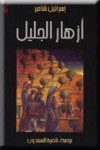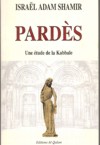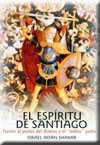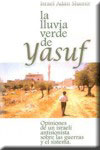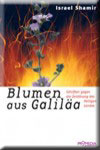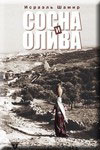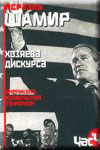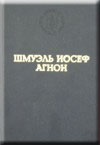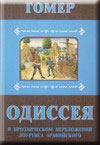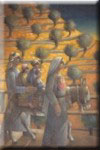Zionism Laid Bare
Review of Shahid Alam's 'Israeli Exceptionalism'
Kathleen Christison
The essential point of M. Shahid Alam’s book, Israeli Exceptionalism: The Destabilizing Logic of Zionism, comes clear upon opening the book to the inscription in the frontispiece. From the Persian poet and philosopher Rumi, the quote reads, “You have the light, but you have no humanity. Seek humanity, for that is the goal.” Alam, professor of economics at Northeastern University in Boston and a CounterPunch contributor, follows this with an explicit statement of his aims in the first paragraph of the preface. Asking and answering the obvious question, “Why is an economist writing a book on the geopolitics of Zionism?” he says that he “could have written a book about the economics of Zionism, the Israeli economy, or the economy of the West Bank and Gaza, but how would any of that have helped me to understand the cold logic and the deep passions that have driven Zionism?”
Until recent years, the notion that Zionism was a benign, indeed a humanitarian, political movement designed for the noble purpose of creating a homeland and refuge for the world’s stateless, persecuted Jews was a virtually universal assumption. In the last few years, particularly since the start of the al-Aqsa intifada in 2000, as Israel’s harsh oppression of the Palestinians has become more widely known, a great many Israelis and friends of Israel have begun to distance themselves from and criticize Israel’s occupation policies, but they remain strong Zionists and have been at pains to propound the view that Zionism began well and has only lately been corrupted by the occupation. Alam demonstrates clearly, through voluminous evidence and a carefully argued analysis, that Zionism was never benign, never good—that from the very beginning, it operated according to a “cold logic” and, per Rumi, had “no humanity.” Except perhaps for Jews, which is where Israel’s and Zionism’s exceptionalism comes in.
Alam argues convincingly that Zionism was a coldly cynical movement from its beginnings in the nineteenth century. Not only did the founders of Zionism know that the land on which they set their sights was not an empty land, but they set out specifically to establish an “exclusionary colonialism” that had no room for the Palestinians who lived there or for any non-Jews, and they did this in ways that justified, and induced the West to accept, the displacement of the Palestinian population that stood in their way. With a simple wisdom that still escapes most analysts of Israel and Zionism, Alam writes that a “homeless nationalism,” as Zionism was for more than half a century until the state of Israel was established in 1948, “of necessity is a charter for conquest and—if it is exclusionary— for ethnic cleansing.”
How has Zionism been able to put itself forward as exceptional and get away with it, winning Western support for the establishment of an exclusionary state and in the process for the deliberate dispossession of the native population? Alam lays out three principal ways by which Zionism has framed its claims of exceptionalism in order to justify itself and gain world, particularly Western, support. First, the Jewish assumption of chosenness rests on the notion that Jews have a divine right to the land, a mandate granted by God to the Jewish people and only to them. This divine election gives the homeless, long-persecuted Jews the historical and legal basis by which to nullify the rights of Palestinians not so divinely mandated and ultimately to expel them from the land. Second, Israel’s often remarkable achievements in state-building have won Western support and provided a further justification for the displacement of “inferior” Palestinians by “superior” Jews. Finally, Zionism has put Jews forward as having a uniquely tragic history and as a uniquely vulnerable country, giving Israel a special rationale for protecting itself against supposedly unique threats to its existence and in consequence for ignoring the dictates of international law. Against the Jews’ tragedy, whatever pain Palestinians may feel at being displaced appears minor.
The ethnic cleansing of the Palestinians that came as the result of Zionism’s need for an exclusivist homeland was no unfortunate consequence, and indeed had long been foreseen by Zionist thinkers and the Western leaders who supported them. Alam quotes early Zionists, including Theodore Herzl, who talked repeatedly of persuading the Palestinians “to trek,” or “fold their tents,” or “silently steal away.” In later years, the Zionists spoke of forcible “transfer” of the Palestinians. In the 1930s, David Ben-Gurion expressed his strong support for compulsory transfer, crowing that “Jewish power” was growing to the point that the Jewish community in Palestine would soon be strong enough to carry out ethnic cleansing on a large scale (as it ultimately did). In fact, the Zionists knew from the start that there would be no persuading the Palestinians simply to leave voluntarily and that violent conquest would be necessary to implant the Zionist state.
The British knew this as well. Zionist supporter Winston Churchill wrote as early as 1919 that the Zionists “take it for granted that the local population will be cleared out to suit their convenience.” In a blunt affirmation of the calculated nature of Zionist plans and Western support for them, British Foreign Secretary Arthur Balfour, like Churchill another early supporter and also author of the 1917 Balfour Declaration, which promised British support for the establishment of a Jewish homeland in Palestine, wrote that Zionism “is rooted in age-long traditions, in present needs, in future hopes, of far profounder import than the desires and prejudices of the 700,000 Arabs who now inhabit that ancient land.” It would be hard to find a more blatant one-sided falsity.
Alam traces in detail the progression of Zionist planning, beginning with the deliberate creation in the nineteenth century of an ethnic identity for Jews who shared only a religion and had none of the attributes of nationhood—neither a land, nor a common language or culture, nor arguably a common gene pool. Here Alam covers briefly the ground trod in detail by Israeli historian Shlomo Sand, whose book The Invention of the Jewish People, appearing in English just months before Alam’s book, shattered the myths surrounding Zionism’s claim to nationhood and to an exclusive right to Palestine. But Alam goes further, describing the Zionist campaign to create a surrogate “mother country” that, in the absence of a Jewish nation, would sponsor the Zionists’ colonization of Palestine and support its national project. Having gained British support for its enterprise, Zionism then set about building a rationale for displacing the Palestinian Arabs who were native to Palestine (who, incidentally, did indeed possess the attributes of a nation but lay in the path of a growing Jewish, Western-supported military machine). Zionist propaganda then and later deliberately spread the notion that Palestinians were not “a people,” had no attachment to the land and no national aspirations, and in the face of the Jews’ supposedly divine mandate, of Israel’s “miraculous” accomplishments, and of the Jews’ monumental suffering in the Holocaust, the dispossession of the Palestinians was made to appear to a disinterested West as nothing more than a minor misfortune.
Addressing what he calls the “destabilizing logic” of Zionism, Alam builds the argument that Zionism thrives on, and indeed can survive only in the midst of, conflict. In the first instance, Alam shows, Zionism actually embraced the European anti-Semitic charge that Jews were an alien people. This was the natural result of promoting the idea that Jews actually belonged in Palestine in a nation of their own, and in addition, spreading fear of anti-Semitism proved to be an effective way to attract Jews not swayed by the arguments of Zionism (who made up the majority of Jews in the late nineteenth and early twentieth centuries) to the Zionist cause. Early Zionist leaders talked frankly of anti-Semitism as a means of teaching many educated and assimilated Jews “the way back to their people” and of forcing an allegiance to Zionism. Anti-Semitism remains in many ways the cement that holds Zionism together, keeping both Israeli Jews and diaspora Jews in thrall to Israel as their supposedly only salvation from another Holocaust.
In the same vein, Alam contends, Zionists realized that in order to succeed in their colonial enterprise and maintain the support of the West, they would have to create an adversary common to both the West and the Jews. Only a Jewish state waging wars in the Middle East could “energize the West’s crusader mentality, its evangelical zeal, its dreams of end times, its imperial ambitions.” Arabs were the initial and enduring enemy, and Zionists and Israel have continued to provoke Arab antagonism and direct it toward radicalism, to steer Arab anger against the United States, to provoke the Arabs into wars against Israel, and to manufacture stories of virulent Arab anti-Semitism— all specifically in order to sustain Jewish and Western solidarity with Israel. More recently, Islam itself has become the common enemy, an adversary fashioned so that what Alam calls the “Jewish-Gentile partnership” can be justified and intensified. Focusing on Arab and Muslim hostility, always portrayed as motivated by irrational hatred rather than by opposition to Israeli and U.S. policies, allows Zionists to divert attention from their own expropriation of Palestinian land and dispossession of Palestinians and allows them to characterize Israeli actions as self-defense against anti-Semitic Arab and Muslim resistance.
Alam treats the Zionist/Israel lobby as a vital cog in the machine that built and sustains the Jewish state. Indeed, Theodore Herzl was the original Zionist lobbyist. During the eight years between the launch of the Zionist movement at Basel in 1897 and his death, Herzl had meetings with a remarkable array of power brokers in Europe and the Middle East, including the Ottoman sultan, Kaiser Wilhelm II, King Victor Emanuel III of Italy, Pope Pius X, the noted British imperialist Lord Cromer and the British colonial secretary of the day, and the Russian ministers of interior and finance, as well as a long list of dukes, ambassadors, and lesser ministers. One historian used the term “miraculous” to describe Herzl’s ability to secure audiences with the powerful who could help Zionism.
Zionist lobbyists continued to work as assiduously, with results as “miraculous,” throughout the twentieth century, gaining influence over civil society and ultimately over policymakers and, most importantly, shaping the public discourse that determines all thinking about Israel and its neighbors. As Alam notes, “since their earliest days, the Zionists have created the organizations, allies, networks, and ideas that would translate into media, congressional, and presidential support for the Zionist project.” An increasing proportion of the activists who lead major elements of civil society, such as the labor and civil rights movements, are Jews, and these movements have as a natural consequence come to embrace Zionist aims. Christian fundamentalists, who in the last few decades have provided massive support to Israel and its expansionist policies, grew in the first instance because they were “energized by every Zionist success on the ground” and have continued to expand with a considerable lobbying push from the Zionists.
Alam’s conclusion—a direct argument against those who contend that the lobby has only limited influence: “It makes little sense,” in view of the pervasiveness of Zionist influence over civil society and political discourse, “to maintain that the pro-Israeli positions of mainstream American organizations . . . emerged independently of the activism of the American Jewish community.” In its early days, Zionism grew only because Herzl and his colleagues employed heavy lobbying in the European centers of power; Jewish dispersion across the Western world—and Jewish influence in the economies, the film industries, the media, and academia in key Western countries—are what enabled the Zionist movement to survive and thrive in the dark years of the early twentieth century; and Zionist lobbying and molding of public discourse are what has maintained Israel’s favored place in the hearts and minds of Americans and the policy councils of America’s politicians.
This is a critically important book. It enhances and expands on the groundbreaking message of Shlomo Sand’s work. If Sand shows that Jews were not “a people” until Zionism created them as such, Alam shows this also and goes well beyond to show how Zionism and its manufactured “nation” went about dispossessing and replacing the Palestinians and winning all-important Western support for Israel and its now 60-year-old “exclusionary colonialism.”
Kathleen Christison is the author of Perceptions of Palestine and the Wound of Dispossession and co-author, with Bill Christison, of Palestine in Pieces: Graphic Perspectives on the Israeli Occupation, published last summer by Pluto Press. She can be reached at kb.christison@ earthlink. net.
--
M. Shahid Alam
Professor of Economics
Northeastern University
Boston, MA 02115
http://us.macmillan .com/israeliexce ptionalism
http://aslama. org



